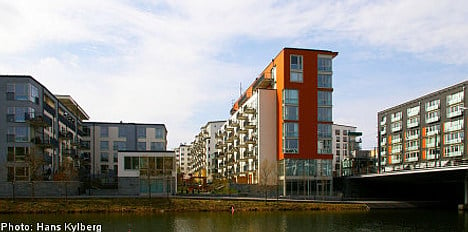When Sweden introduced the new law back in February of this year, the Swedish Union of Tenants (Hyrsegästföreningen) expressed concerns that rents would increase once flat owners were more free to set rents they charged to potential subletters.
While rents have increased significantly in Stockholm according to statistics from Swedish buy-sell website Blocket, it’s a different story in Sweden’s south.
SEE ALSO: Check out the latest home listings in The Local’s Property Section
Throughout 2013’s second quarter, Sweden’s third largest city Malmö, has seen 35 percent increase in the number homes being advertised as sublets on the popular buy-sell site. The rents, meanwhile, have increased by just 100 kronor ($15) per month on average.
“This can be due to the housing market being different in general when you get further south, giving a divided picture,” Barbro Engman, chairwoman at the Swedish Union of Tenants, told the TT news agency.
“Then it’s a problem in itself that the only statistics we have to go on are from Blocket. It begs questions about how the situation was before the laws came into effect, among other things.”
The new law, which came into effect on February 1st, gives apartment owners more flexibility in setting rents for sublets that are more in line with the actual costs of ownership.
READ ALSO: The Lowdown: Sweden’s new subletting law
The changes, approved by the Riksdag in December, are meant to boost the supply of properties available for rent by removing the current cap on how much flat owners can charge would-be-tenants.
“The whole idea was that if you raise the rents then there would be many more sublets available and that would increase the supply,” Engman told Sveriges Radio (SR) on Monday.
SEE ALSO: Find your next home with The Local’s Rentals Section
“This meant that according to the new laws, there could be a rent increase of up to 80 percent, but that proved to be a misjudgement.”
TT/The Local/og




 Please whitelist us to continue reading.
Please whitelist us to continue reading.
Member comments